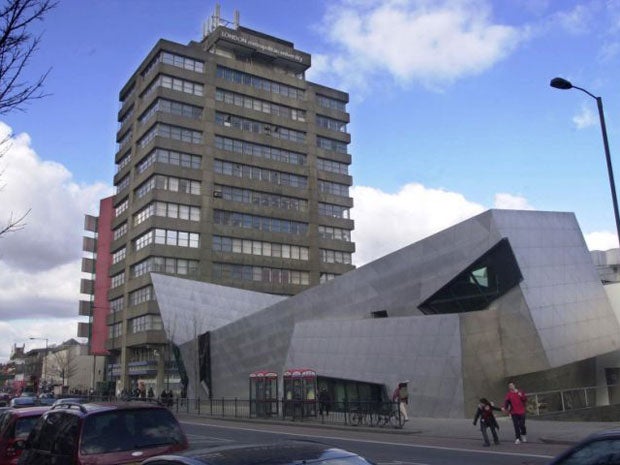London and Cardiff Metropolitan named ‘worst’ universities for resolving student complaints
Data analyses the number of Completion of Procedure Letters issued when internal complaints processes are exhausted

London Metropolitan University has been named the worst in England and Wales when it comes to resolving student complaints.
Higher education guide, The Complete University Guide, has analysed the number of Completion of Procedure Letters issued when internal complaints processes at universities come to an end.
Students who have filed a complaint are given the letter after an institution’s internal complaints process has been exhausted, and the rankings have looked at the number of the letters issued per 1,000 students from 2012 to 2014.
As well as the London Met, Cardiff Metropolitan University and Liverpool have taken second and third place, respectively, for being the worst.
Top 10 universities with the most unresolved complaints (per 1,000):
- London Metropolitan (84.5)
- Cardiff Metropolitan (64.7)
- Liverpool (57.2)
- London South Bank (56.3)
- Leicester (52.3)
- Newcastle (50.8)
- Glyndŵr (46.7)
- Cardiff (45.2)
- Aston (44.7)
- Surrey (43.3)
The number of such letters are recorded and published annually by the Office of the Independent Adjudicator (OIA), the body that seeks to resolve student complaints in England and Wales.
Dr Bernard Kingston, principal author of The Complete University Guide, described it as being “a sad fact of life” that disputes sometimes arise between students and the universities they have chosen to attend.
He said students need to be reassured their complaints are handled effectively and sympathetically, and said: “The data we have compiled shows clearly a significant variation between institutions in handling disputes before they escalate to the OIA or peter out.
“We are making no judgement about the outcome of the complaints, and only a small proportion of the complaints referred to the OIA are upheld wholly or partially.
“We are confident this table - using a methodology that smooths out annual fluctuations and is adjusted for the size of the universities listed - is a reliable guide to the relative likelihood of complaints being resolved.”

Speaking to the Independent, a London Met spokesperson highlighted how the figures relate only to the number of letters issued, adding how this does equate to a poor performance in handling student complaints.
The spokesperson said: “We’ve made considerable progress in resolving complaints internally, from issuing 41.7 COPs per 1,000 students in 2012, to 18.1 in 2014.
“Furthermore, only five per cent of COPs issued by the university in 2012/2014 were escalated to the OIA, compared to an average of 23 per cent in our category band.
“London Met has a transparent and accessible complaints procedure, borne out by this data. In the period 2014/15, we only issued 12 COPs relating to student complaints.”
Having analysed data from 136 institutions, five specialist ones were found to have not issued any of the letters over the three year period: the Conservatoire for Dance and Drama, Ravensbourne, Trinity Laban Conservatoire of Music and Dance, the Royal College of Art, and ifs University College.
Join our commenting forum
Join thought-provoking conversations, follow other Independent readers and see their replies
Comments
Bookmark popover
Removed from bookmarks